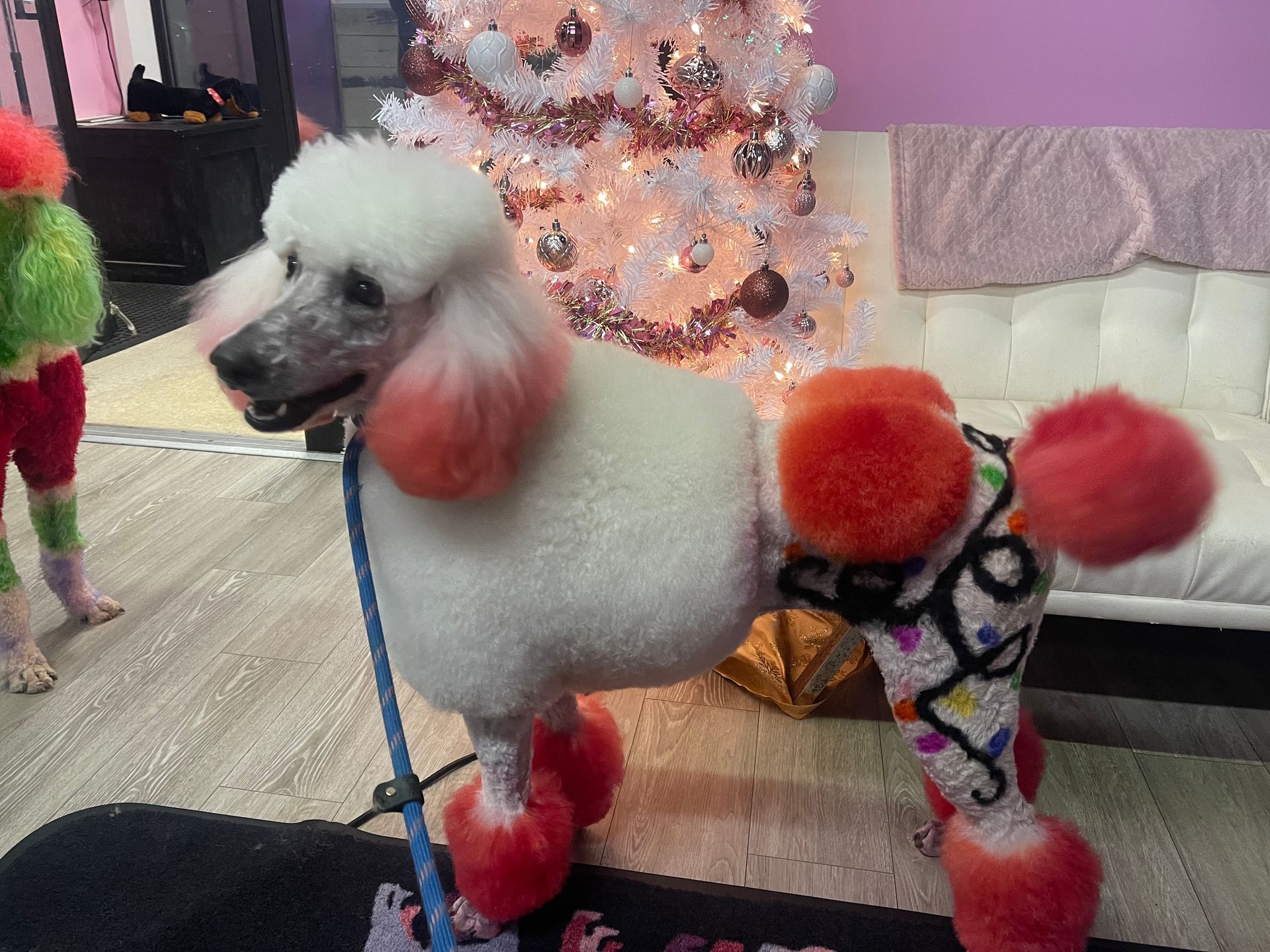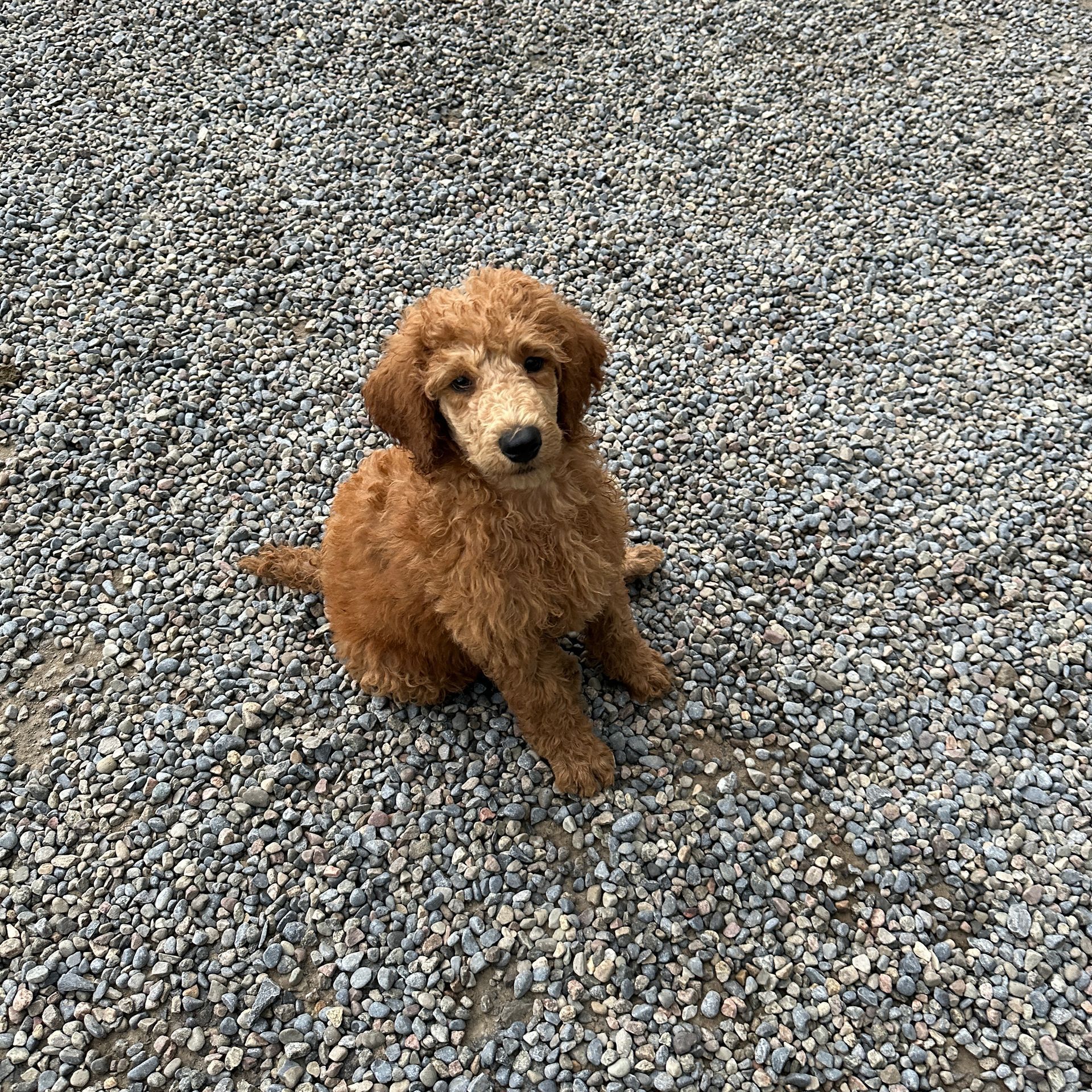Caring for Your Standard Poodle in Cold Weather
Rachael Sann | Mar 12, 2024
Cold weather shouldn’t prevent you and your standard poodle from enjoying fresh air and the great outdoors.
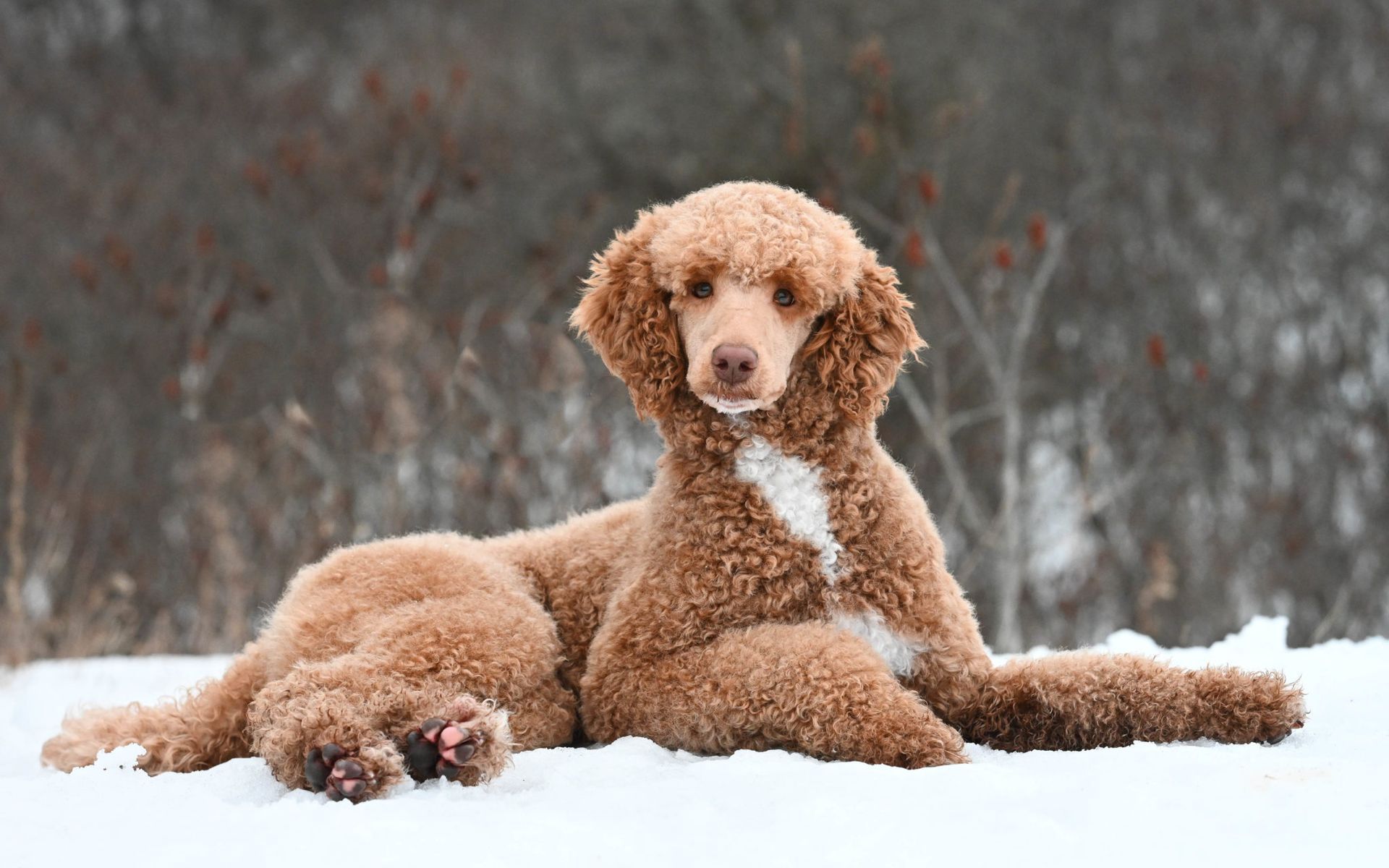
Living in a colder climate with your standard poodle just means you’ll have to take a few extra precautions to ensure your pup, its paws and its coat are well taken care of so they’re safe, comfortable and healthy! Understanding your poodle’s unique needs prior to spending time outside will help make your experience braving the elements a much more enjoyable one.
Understanding Your Poodle's Coat
Your poodle’s gorgeous coat is more than just a fashion statement. The dense fur of a standard poodle provides insulation during the cold weather months, but it can also unfortunately trap moisture from the cold rain or snow. Trapped moisture can cause your pup discomfort and can lead to chills– neither of which is ideal for your pup (or you!). During the winter, it’s crucial that you take extra care of your poodle’s coat to prevent matting because when the standard poodle’s coat gets matted, the insulating properties are diminished. Talk to your regular groomer about a winter-friendly trim that keeps your poodle warm while minimizing the risk of accumulating snowballs.
Dressing Your Poodle for the Cold Weather
We often see poodles wearing sweaters and jackets during the colder months. While these outfits are adorable, they do serve a purpose that goes beyond fashion. The proper winter gear will enhance the job of your poodle’s coat. Your poodle should be dressed in a jacket or sweater that is water-resistant and insulated. Proper fitting attire for your poodle is also essential! Whatever jacket or sweater you choose for your poodle needs to be fitted enough to keep them warm and dry, while also allowing for full range of movement and comfort. Consider taking your poodle to a store to try on a few outfits to ensure best fit before buying something online.
Protecting Paws from Cold and Salt
While your poodle’s paws are built to withstand some of the cold and moisture they will encounter on a cold, snowy day, your poodle’s paws are not equipped to protect from the harsh chemicals and salt found on neighborhood roads and sidewalks for ice removal. If you live in an area where your poodle will need to walk on public streets or sidewalks rather than a snowy backyard, you might want to invest in some foot protection. Dog boots are a great solution, offering protection as well as traction. However, your poodle might be fussy about putting something on their paws. In that case there are paw balms you can rub onto your pup’s pads to provide a layer of protection from the irritants they might encounter on their walk. Be sure to rinse their paws afterwards to remove residual salt so it’s not seeping into your pup’s paws or tracking through your house.
Adjusting Exercise and Outdoor Time
Cold weather means adjusting the amount of time your poodle spends outdoors. Poodles are highly energetic and love playtime– as it’s essential for their physical and mental wellbeing. However, prolonged exposure to the cold can negatively impact your poodle’s health. If your poodle is used to taking long walks and having lots of outside time, it might be better for you to take more frequent, but much shorter walks. You can help expend their energy by giving them puzzle toys and interactive games. You’ll find that your pup will need exercise and stimulation as much as they always have, but you’ll have to just do it a little differently to help keep your poodle safe from the elements of the colder months.
Diet and Nutrition During Colder Months
Depending on the age of your pup, they might require a dietary adjustment in winter if their activity levels decrease. Keep an eye on your poodle’s weight and if you’re feeling concerned, consult your vet about their dietary needs. Just like humans, hydration is just as important during the winter months, make sure your poodle has constant access to fresh water.
Health Checks and Winter Concerns
Regular vet check-ups are important for monitoring and maintaining your poodle's health, especially in winter. Be on the lookout for signs of hypothermia, such as shivering or lethargy, and seek immediate veterinary care if you suspect your dog is too cold. Work with your vet to see if there are any additional preventative measures you can take based on your pup’s age and unique needs.
Creating a Cozy Indoor Environment
Just like your home is a warm refuge for you, you should make it just as cozy to your pup. Your poodle’s bed should be warm and insulated and should be located away from drafts and doors. If you like to keep your home on the chillier side, keep your pup warm with a cozy indoor sweater. If your home is larger, you might want to consider creating a couple cozy spaces throughout your house so that your pup can be near you and the action of the home while having a warm retreat.
Socialization and Mental Health In The Winter
Winter can be isolating, for both humans and pups. However, it's essential to keep your poodle socially and mentally engaged for the health, happiness and longevity of your poodle . Arrange walks or playdates with other social pups, enroll in indoor doggy classes, or simply spend quality time together at home.
You can help keep your poodle happy and healthy even in colder months.
Even if you and your poodle aren’t big fans of the colder weather, snow and darker days, you both can enjoy quality time together and activities. Sure, extra precautions and planning might be in order, but doing so will allow your pup to engage in much needed exercise in a comfortable way. Remember to speak to your vet for specific questions regarding your poodle’s health and needs.

More Posts From Hillside Standard Poodles
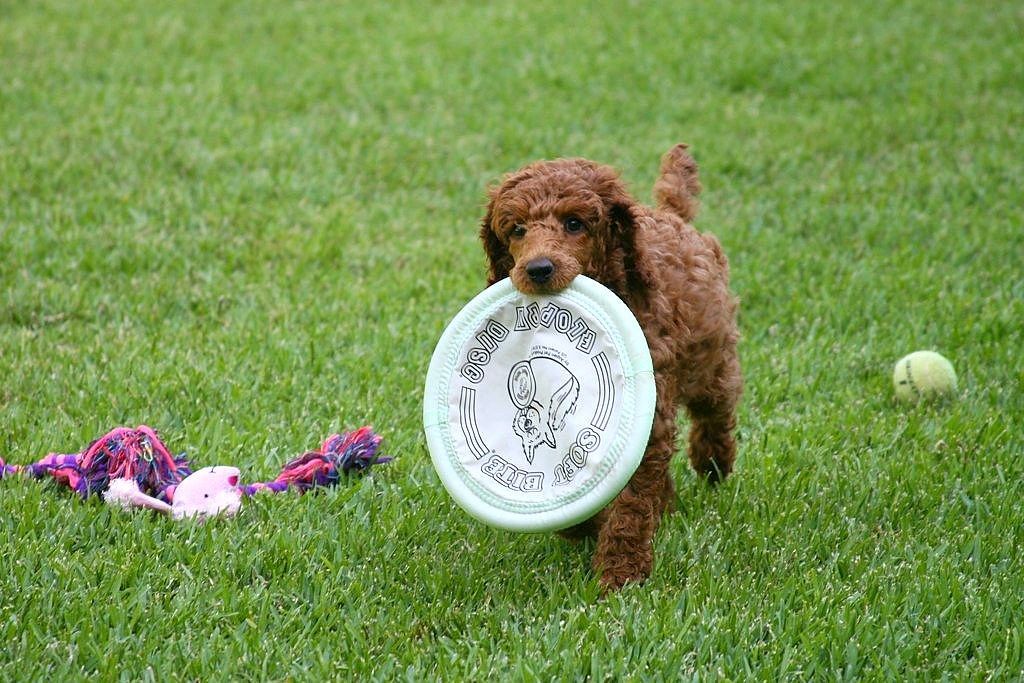
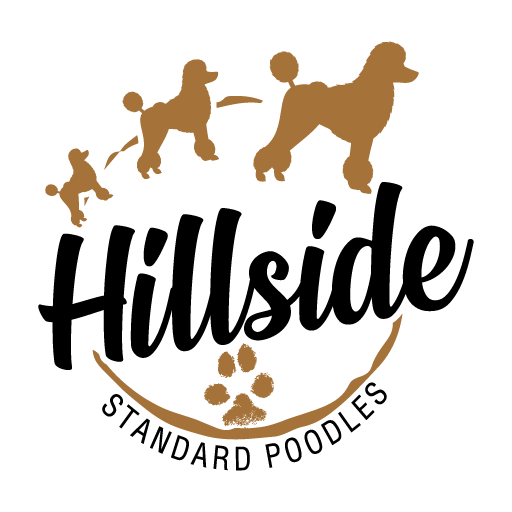
Hillside Standard poodles are tested and AKC registered. We are NY State Licensed #1052 breeders and AKC inspected.

